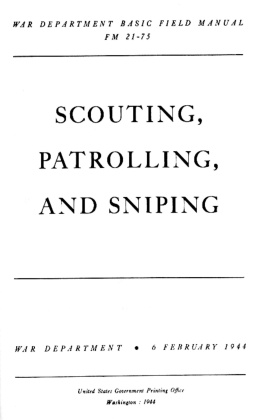The Hoover Institution gratefully acknowledges
T HE E WING M ARION K AUFFMAN F OUNDATION
for their significant support of this publication.
Kori N. Schake
H O O V E R I N S T I T U T I O N P R E S S
STANFORD UNIVERSITY STANFORD, CALIFORNIA
T he Hoover Institution on War, Revolution and Peace, founded at Stanford University in 1919 by Herbert Hoover, who went on to become the thirty-first president of the United States, is an interdisciplinary research center for advanced study on domestic and international affairs. The views expressed in its publications are entirely those of the authors and do not necessarily reflect the views of the staff, officers, or Board of Overseers of the Hoover Institution.
www.hoover.org
Hoover Institution Press Publication No. 620
Hoover Institution at Leland Stanford Junior University,
Stanford, California 94305-6010
Copyright 2012 by the Board of Trustees of the
Leland Stanford Junior University
All rights reserved. No part of this publication may be reproduced, stored in a retrieval system, or transmitted in any form or by any means, electronic, mechanical, photocopying, recording, or otherwise, without written permission of the publisher and copyright holders.
For permission to reuse material from State of Disrepair: Fixing the Culture and Practices of the State Department , ISBN 978-0-8179-1454-7, please access www.copyright.com or contact the Copyright Clearance Center, Inc. (CCC), 222 Rosewood Drive, Danvers, MA 01923, 978-750-8400. CCC is a not-for-profit organization that provides licenses and registration for a variety of uses.
Hoover Institution Press assumes no responsibility for the persistence or accuracy of URLs for external or third-party Internet websites referred to in this publication, and does not guarantee that any content on such websites is, or will remain, accurate or appropriate.
First printing 2012
Manufactured in the United States of America
Library of Congress Cataloging-in-Publication Data
Schake, Kori N., author.
State of disrepair : fixing the culture and practices of the State Department / Kori Schake.
pages cm.(Hoover Institution Press publication ; No. 620)
Includes bibliographical references and index.
ISBN 978-0-8179-1454-7 (cloth : alk. paper)ISBN 978-0-8179-1456-1 (e-book)
1. United States. Dept. of State. 2. Diplomatic and consular service, American. 3. United StatesForeign relations administration. 4. United StatesForeign relations21st century. I. Title. II. Series: Hoover Institution Press publication ; 620.
JZ1480.A4 2012
353.1'30973dc23 2012001952
All diplomacy is war by other means.
Zhou Enlai
FOREWORD
I first met Kori last year at a dinner honoring Stanford students who either are currently serving or have served in the military. In a casual conversation I learned both of her deep interest and expertise in the military and foreign policy (shes on the faculty of the United States Military Academy at West Point and has served as deputy director of the Policy Planning Staff). I also learned that she had recently completed this booka book that, in part, talks about how the State Department might better accomplish its mission by learning something from the military. It is a provocative and apt comparison. It also raises profound and important questions about leadership and organizational change.
I indicated to Kori that although I had no expertise in the State Department (other than a one-month assignment when I was in the Army), organizational change was a topic that I did know something about. For the past thirty years I have studied and consulted with organizations ranging from private-sector corporations to international agencies and public institutions as they have attempted to transform themselves, sometimes successfully and sometimes not. Her book sounded fascinating because, at its heart, it proposes how the State Departmenta critically important organization for Americaneeds to fundamentally transform itself. I asked if I might read a draft of her book.
In reading the book, I was struck at her practical wisdom and insight into the problems and challenges facing the leaders of the State Department. Although leaders of public-sector organizations often claim how unique their challenges are, my experience refutes that. Of course there are special circumstances involved in managing within the public sectorbut there are special challenges in leading almost any organization. As I read Koris description of the responsibilities confronting the leaders of the State Department, I was struck at how similar those problems are to other large-scale change efforts. In my view, this was good news in that we know what it takes to successfully transform organizations, and those lessons can help the leaders of the State Department.
Kori drives home this message in her discussion of how the U.S. military has been able to transform itself and how those hard-earned lessons might help the State Department. Indeed, many of the lessons learned by leaders such as Carlos Ghosn (who transformed Nissan), Lou Gerstner (who saved IBM), Gordon Bethune (who took Continental Airlines from worst to first among U.S. airlines), or Dan Vasella (who took a mediocre pharmaceutical company and transformed it into a world leader) apply directly to the transformation Kori proposes. Some within the State Department will be offended by comparing their hallowed organization to the crass likes of an airline or a car company. They will claim (defensively) that the challenges they face are different. But, after reading her book, I believe that this is not true. The difference between the State Department and other organizations is that the mission of the State Department is more important than that of airlines and computer companies, which means that the responsibilities of its leaders are also greater. If a private-sector firm misses its financial goals, shareholders may lose some money. If the leaders of the State Department fail in their mission, the United States suffers.
This book offers a compelling and practical case for how leaders in the State Department can make their organization better and more effective. Written in a highly accessible way and filled with practical advice and concrete examples, it is a book that is broadly relevant for managers and organizational scholars as well as members of government.
In an important way, this is a book about leadership and organizational change. Koris recommendations deserve to be taken seriously and acted on by leaders in our government. If they fail at this, they will have failed as leadersand failed the American people whom they claim to serve.
P ROFESSOR C HARLES A . OR EILLY III
Frank E. Buck Professor of Management
Hank McKinnell-Pfizer Director of the Center
for Leadership Development and Research
Graduate School of Business
Stanford University
ACKNOWLEDGMENTS
I am deeply grateful to Carl Schramm, that tornado of Schumpeterian creative destruction, for encouraging me to write this book. Among his many fine qualities is his encouragement of ideas he doesnt agree withunder his stewardship of the Ewing Marion Kauffman Foundation has become a major generator of ideas. I cant say often enough, and never without smiling, how much I appreciate the Kauffman Foundation funding work it knew to be arguing against the position it advocated on expeditionary economics. It is so indicative of the foundations commitment to the power of ideas that it supports its critics in a belief that is how ideas are tested and how better solutions, where there may be better solutions, are developed.















